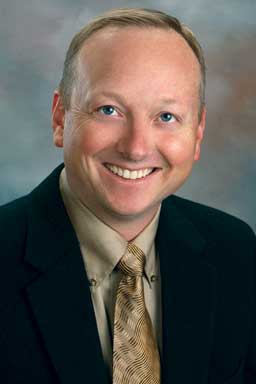“Hello Dr. Ruen, I am the legislative assistant that handles all the animal rights issues for the congressman.” Welcome to Washington, DC, 2010, where PETA “educates” the riders on the metro with pictures and slogans, cheeseburgers at the House cafeteria originate from strictly vegetarian cattle, and the largest dollar category of five competitive research focus areas of the Agriculture and Food and Research Initiative (AFRI)1 is “Climate Change.” Food-animal researchers battle for a sliver of a shrinking pie, dollars reallocated by the changing political winds of our elected government. Not all change in Washington is slow and incremental – some comes at us like the fastballs of fury tossed out by Nationals rookie Stephen Strasburg!
The AASV executive officer team made our fourth annual trek to the nation’s capitol in June. With the goals of relationship building and issue education, we met with many in the United States Department of Agriculture, the Food and Drug Administration/Center for Veterinary Medicine, and others. We each had individual appointments with staff of our elected senators and representatives to inform them on issues important to veterinarians and animal agriculture.
An encouragement is that AFRI has recognized the need for research in PRRS vaccinology and immunology specific to heterologous protection. While none of us are waiting for a magic elixir to cure the PRRS spell, help is welcome on all fronts. A new on-line system to access research projects funded at the National Institute of Food and Agriculture (NIFA) is available.1 Program leaders in agriculture were keen to hear from AASV what could be done to improve access to research information and for input on prioritizing research funds.
Veterinarians on the “Hill” are a rare commodity, but one on a Minnesota senator’s staff is in a unique and valuable position to educate a community of elected lawyers who view issues according to their impact on people (read voters). On the House side, however, I was told by my congressman’s agriculture legislative assistant that the representative hopes for a compromise bill to the Preservation of Antibiotics for Medical Treatment Act.2 “The Minnesota Pew folks are becoming very active,” was the word of warning. “We feel there will be movement on the bill and that a vote in the House is likely this session.” The fact that my meeting also included a legislative assistant responsible for animal rights issues – working for a congressman on the agriculture committee – is a wakeup call. People, we have to show up and be counted.
On June 28, the FDA published “Draft Guidance #209 – The Judicious Use of Medically Important Antimicrobial Drugs in Food-Producing Animals.3” It states FDA’s current thinking on removing label claims for production and growth-enhancement from antimicrobials used in food animals, and requiring veterinary oversight for use of all antimicrobials in food animals. The AASV has developed key talking points and will provide comments to the FDA.
We’re long-term thinkers – we have to be. I am thankful for the knowledge and skills of diplomacy our organization employs in Drs Burkgren and Snelson. We continue to have fine representation by officers, committee members, and others who passionately go to bat for veterinarians, the pig, and science. We build relationships and credibility over the long haul by having consistent leadership and useful knowledge offered up by our profession. We continue to dialogue and work with the AVMA, the AABP, and other food-animal groups whenever agreement is possible, for we are a small voice. The AVMA’s Washington, DC, office has provided meeting space, reviewed legislation, and coordinated visits to Capitol Hill.
Leadership comes in many forms. I am drawn to examples from history. For those of you who are familiar with WW2 and have seen the HBO miniseries or read Band of Brothers,4 you know that much of the success for Easy Company of the 506th Parachute Infantry Regiment/101st Airborne Division attributes to training and the legendary leadership of Major Dick Winters. In his book of memoirs, Beyond Band of Brothers,5 Major Winters outlines 10 principles for success he calls “Leadership at the Point of the Bayonet.” Number one: “Strive to be a leader of character, competence, and courage.” Honesty is the cornerstone, he says, to develop character that demonstrates you can be trusted. Our influence at the government and public levels generally won’t be immediate. Relationship building and sustained impact is possible only by demonstrating we care and by holding to the highest integrity in our dealings with officials, just as with clients and peers.
Swine veterinarians have the character assets necessary to make an impact, and our competence on issues of animal health and well-being is unparalleled, but will we take the initiative and coordinate efforts as food-animal stewards? I sent handwritten thank-you notes to the staffers in my senators’ and representative’s offices for the time they took to visit and listen to a veterinarian. Keep encouraged and hold closely to number 10 on Major Winters’ leadership list, “Hang tough! – Never, ever, give up.”
References
1. United States Department of Agriculture, National Institute of Food and Agriculture. Available at: http://www.nifa.usda.gov. Accessed 2 July 2010.
2. S.619/H.R.1549: Preservation of Antibiotics for Medical Treatment Act of 2009. Available at: www.govtrack.us/congress/bill.xpd?bill=h111-1549. Accessed 4 July 2010.
3. United States Department of Agriculture, Food and Drug Administration, Center for Veterinary Medicine. Available at: http://www.fda.gov/downloads/AnimalVeterinary/GuidanceCompliance Enforcement/GuidanceforIndustry/UCM216936.pdf. Accessed 2 July 2010.
4. Ambrose S. Band of Brothers. New York, New York: Simon and Schuster Inc; 1992.
5. Winters R, Kingseed C. Beyond Band of Brothers. New York, New York: Penguin Group (USA) Inc; 2006.
--Paul Ruen, DVM

